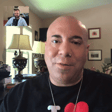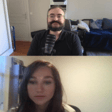Become a Creator today!Start creating today - Share your story with the world!
Start for free
00:00:00
00:00:01

Ep 20 - Jeremy Carl, Claremont Institute - Is Anti-White Racism Real And What Should We Do About It?
On this episode of the Sphere Podcast, Pascal-Emmanuel Gobry, Publisher of Sphere Media, interviews Jeremy Carl, Senior Fellow at the Claremont Institute, on his book "The Unprotected Class: How Anti-White Racism Is Tearing America Apart."
Subscribe to the PolicySphere Morning Briefing: https://policysphere.com/subscribe
Follow Jeremy on X: https://x.com/realJeremyCarl
Subscribe to the Sphere Podcast on Apple Podcasts: https://podcasts.apple.com/us/podcast/sphere-podcast/id1780831168
Subscribe to the Sphere Podcast on Spotify: https://open.spotify.com/show/48eWEcxSYDyrgjC3lO0EJZ
Subscribe to the Sphere Podcast on YouTube: https://www.youtube.com/channel/UCB2gs2TBXeP7vyn9QUaaxjQ
Transcript
Introduction and Guest Introduction
00:00:01
Pascal-Emmanuel Gobry
Hello everyone and welcome to the low production value sphere podcast. I'm wearing a shirt today. ah And of course, this is being shot from my terrorist hideout in Syria.
00:00:13
Pascal-Emmanuel Gobry
Although now the terrorists are running the country. So, ah you know, we should get nicer dicks soon. All right. Enough about
Discussing 'The Unprotected Class'
00:00:20
Pascal-Emmanuel Gobry
that. ah I have a great guest with me today, ah my good friend Jeremy Carl, who's now still affiliated with the Claremont Institute, right, um who wrote a very important book.
00:00:30
Jeremy Carl
I am.
00:00:34
Pascal-Emmanuel Gobry
I interviewed him the first time for the website, having not read the book. And I read the book since. ah And it's really one of those books that I encourage people to actually read because they're, you know, let's be honest, there are books, if you read the Wikipedia summary, you don't need to read the book. Once once you understand the basic argument, you're fine.
00:00:59
Pascal-Emmanuel Gobry
You agree with it, you don't agree with it, but ah but you're fine. This is a book that deserves actually reading because there are so many examples on nearly every page that will sort of make your hair ah stand up.
00:01:14
Pascal-Emmanuel Gobry
So the book
Why Label as Anti-White?
00:01:15
Pascal-Emmanuel Gobry
is titled The Unprotected Class, and I'm going to let you, Jeremy, tell us what the book is about.
00:01:21
Jeremy Carl
Sure. Thanks so much for for having me on. it's It's on the rise of anti-white racism in the United States, so sort of a spicy topic. And ah in the book, I sort of look at it kind of how that has manifested itself in 12 different areas, everything from kind of the entertainment world to housing policy to affirmative action in jobs and and things like that.
00:01:44
Jeremy Carl
And then I suggest some solutions for it. So ah that's basically the the quick elevator pitch summary of the book.
00:01:54
Pascal-Emmanuel Gobry
Very good. Okay. ah So i'm I'm just going to ask ah the questions that a lot of our audience may be asking. And the the first question, the most obvious one, has to do with the framing of the book, right?
00:02:08
Pascal-Emmanuel Gobry
Because people don't like to hear the word anti-white. ah They don't like to hear the word white. ah
00:02:14
Jeremy Carl
Right. Right.
00:02:15
Pascal-Emmanuel Gobry
And so, you know... they would say, yes, discrimination is it's bad, but do we have to frame it as something that's anti-white? And so an example, for example, would be college admissions, right?
00:02:29
Pascal-Emmanuel Gobry
College admissions, ah you know, assuming...
00:02:34
Pascal-Emmanuel Gobry
bracketing the Supreme Court decision, which universities may or may not be abiding by, um but sort of affirmative action, you know, people could say, well, you know, it's seeking to help some people and sort of arithmetically, it ends up disadvantaging other people, which includes whites, but not only whites, also Asians, also Jews, also
00:02:39
Jeremy Carl
right
Examples of Anti-White Policies
00:02:55
Pascal-Emmanuel Gobry
et cetera, et cetera.
00:02:56
Pascal-Emmanuel Gobry
And so does it help? why does it help to say to call something like this anti-white, for example.
00:03:05
Jeremy Carl
Sure. And that's a great question. and And I'm glad that you sort of mentioned, not only do people not like to say anti-white, they don't like to say white. And that was that was really honestly part of the reason I wrote the book, because we need to to talk about these things. I mean, it's a little bit like...
00:03:22
Jeremy Carl
uh, back in your own, uh, country when the, before there was the national rally, it was the national front, you know, people needed to actually raise the issues before you can get any movement on it.
00:03:32
Pascal-Emmanuel Gobry
Right.
00:03:33
Jeremy Carl
Right. So that's just, um, you know, and then people are going to call you lots of names when you do that, but eventually, ah hopefully over time you win. So, uh, particularly sort of boomer age folks are very uncomfortable when you use the word white. And I mean, I've seen that, um,
00:03:50
Jeremy Carl
You know, they they want to kind of talk about anything else or even they'll they'll frame the the discrimination in some other way. But that's really why we need to talk about it, because that's what it's been. going on.
00:04:01
Jeremy Carl
And in fact, Steve Saylor has talked about kind of anti-whiteness as the KKK crazy glue that holds the other coalition together.
00:04:08
Pascal-Emmanuel Gobry
where
00:04:11
Jeremy Carl
I mean, it's really the only thing they they sort of have in common. And so while I might wish that it were otherwise, I think it's really important that we're honest. Now, having said that, you did raise an important point, and I do make this distinction,
00:04:25
Jeremy Carl
In the book, there are plenty of policies in the U.S. that are particularly targeted as anti-white, and you talk about them that way. There are other policies...
00:04:37
Jeremy Carl
that are simply anti-merit in which whites get caught up in them. And you touched on affirmative action in um ah the college admission process, and that is definitely one example of that.
00:04:51
Jeremy Carl
Now, that doesn't make it any less nefarious, but I do think that we always need to make a distinction between actual policies and procedures that are targeted at whites and policies that just have whites get swept up on them. Because also for the second group of policies, ah there are potential coalitions to be made um that look at, ah you know, the other groups that are being affected by it, in this case, Asian Americans and in college admissions. So I do think
Legal vs. Informal Racial Discrimination
00:05:22
Jeremy Carl
it's a useful distinction.
00:05:23
Jeremy Carl
But at the same time, I think it's really important to also call a spade a spade.
00:05:28
Pascal-Emmanuel Gobry
Okay, so you said there are some policies that are definitely anti-white. ah What are they?
00:05:37
Jeremy Carl
Sure. Well, I mean, you have a lot of um fellowships and things like that where you'll literally see and it'll it'll be like, this is for BIPOC people, which is Black, Indigenous people of color or, or you know, we're...
00:05:41
Pascal-Emmanuel Gobry
Right.
00:05:48
Pascal-Emmanuel Gobry
Right. It's basically like anybody except white people, right?
00:05:51
Jeremy Carl
Yeah, right. And they never frame it that way, which is why it's important to say, actually, what you're doing is you have a fellowship.
00:05:53
Pascal-Emmanuel Gobry
Right.
00:05:56
Pascal-Emmanuel Gobry
but That's a very good point, actually, right? they They say it without saying it, which is why it's important to say it.
00:05:59
Jeremy Carl
Yeah.
00:06:02
Pascal-Emmanuel Gobry
Okay, fair enough.
00:06:02
Jeremy Carl
Right. It's it's important.
00:06:03
Pascal-Emmanuel Gobry
Yeah, sorry for interrupting.
00:06:05
Jeremy Carl
No, no, no, not at all. I mean, that's why it is and important to say it. So you have these sorts of things going on. um In a lot of the more informal ways, I mean, with with things in health, I document a lot of things in that chapter where you literally have white people being put at the bottom of a racial hierarchy for treatment of various types, allegedly because they've received some historical advantage for treatment or
00:06:31
Pascal-Emmanuel Gobry
Okay, but like be specific. ah like where you
00:06:33
Jeremy Carl
um so So one example of this, and again, it' it'll be a little controversial on the right, not controversial on the right, but I mean, not everybody on the right for obvious reasons will will want it, but with vaccine priorities for COVID, um you know you had you had several states, including my own actually, in which if you were white, you were...
00:06:45
Pascal-Emmanuel Gobry
Right, yes, that was the thing. I forgot about that.
00:06:51
Pascal-Emmanuel Gobry
and but and And for the viewers, you don't exactly live in a blue state.
00:06:55
Jeremy Carl
No, I
Hiring Discrimination in Big Companies
00:06:56
Jeremy Carl
do not. I live in Montana, right? So, ah you know, again, i mean, people have different views on whether you should have taken a COVID vaccine at all. And I'm not trying to adjudicate that here.
00:07:06
Jeremy Carl
I'm just pointing out that the government thought that this was a desirable thing.
00:07:09
Pascal-Emmanuel Gobry
Right. Yes. Yes.
00:07:10
Jeremy Carl
And in doing that, they had explicit policies in some states where if you were a white 60-year-old, you were behind an African-American 40-year-old or an Asian-American 40-year-old in priority.
00:07:20
Pascal-Emmanuel Gobry
Yes.
00:07:23
Jeremy Carl
So you you have...
00:07:23
Pascal-Emmanuel Gobry
Yes. and And yeah, and and just just just to be clear about that, and thank you for reminding me, and this this is why people should read your book, because it's all this stuff. You read it on Twitter, and you get angry for like a second, and then you forget about it.
00:07:38
Pascal-Emmanuel Gobry
And it's good to sort of like remember, like I had completely forgotten about this, but it's really a thing that they did. Like they created a racial... priority list and it wasn't just racial with whites at the bottom.
00:07:47
Jeremy Carl
Yeah.
00:07:50
Pascal-Emmanuel Gobry
and It wasn't just racial. It didn't take in ah into account age.
00:07:52
Jeremy Carl
Yeah.
00:07:55
Jeremy Carl
Yeah, absolutely.
00:07:56
Pascal-Emmanuel Gobry
So it it was just completely at odds with medical needs because, ah you know ah again, ah as you know assuming that the vaccines do something, which I believe they do, certainly if you're an elderly person, um you know you you need it.
00:08:01
Jeremy Carl
Yeah.
00:08:10
Jeremy Carl
Right.
00:08:12
Jeremy Carl
Right.
00:08:15
Pascal-Emmanuel Gobry
ah you You can make the debate about other people, but certainly the elderly needed it. And of course, the elderly in the US are disproportionately white.
00:08:20
Jeremy Carl
Right.
00:08:22
Pascal-Emmanuel Gobry
So yes, that's a very good example. Sorry, go on.
00:08:25
Jeremy Carl
Yeah,
Media and Anti-White Propaganda
00:08:26
Jeremy Carl
so you have that example. You have things in in Hollywood again, and I use that maybe because there's a little of more informal things going on. So both in informal ways, you now have requirements for the Academy Awards that not a lot of people know about that basically ah require certain numbers of ah diversity points. It's very, very complicated system, but but basically like anti-white quotas are put in to who you need to have in your production staff and your stars, et cetera, to be considered.
00:08:56
Pascal-Emmanuel Gobry
Wow.
00:08:57
Jeremy Carl
ah so that's thing one, but then even sort of slightly more informally, you have, um, either color conscious or color blind casting, ah going on.
00:09:08
Jeremy Carl
And whether you have color conscious or color blind casting basically depends on which, um, which system advantages minorities, ah which is to say, because I think we need to be, whenever you talk about advantaging minorities or or any group, you're talking about disadvantaging some other groups.
00:09:26
Jeremy Carl
And in this case, white Americans.
00:09:27
Pascal-Emmanuel Gobry
Yes.
00:09:28
Jeremy Carl
So you can have, um you know the asian joan of arc in actress uh in theory that hasn't yet thankfully uh happened in france but we've had similar things with like black and boleyn in uh in uk dramas but essentially non-white uh actors playing roles that just were historical roles that that as a matter of being faithful to history would have only
00:09:36
Pascal-Emmanuel Gobry
Right.
00:09:50
Pascal-Emmanuel Gobry
Yes.
00:09:54
Jeremy Carl
ah been a white person and that's fine. But so you're colorblind in that sense. But then in other areas, you can be very color conscious when it comes to sort of having quotas to ah make sure that there are fewer ah white Americans or ah cast in something.
00:10:00
Pascal-Emmanuel Gobry
yeah yeah
00:10:13
Jeremy Carl
So these can go on and on again is I'm glad you pointed out I mean this is why to read the book is there are there are sort of hundreds of these examples and I tried to to to gather those in a very specific way.
00:10:20
Pascal-Emmanuel Gobry
yeah
00:10:23
Pascal-Emmanuel Gobry
Yeah, and it's it's very well documented.
00:10:24
Jeremy Carl
Yeah.
00:10:25
Pascal-Emmanuel Gobry
It's all footnoted and stuff.
00:10:27
Jeremy Carl
yeah
00:10:28
Pascal-Emmanuel Gobry
um Okay, so there the it's good that you go there because there's like two buckets. There's legal stuff and then there's the rest. And on legal stuff...
00:10:41
Pascal-Emmanuel Gobry
We you know, everybody can agree that ah racial discrimination in law is bad and that we shouldn't have it and so on and so forth. Certainly everybody on the right degrees and large numbers, maybe maybe not large numbers, but some people on the left, let's put it that way. Some people on the left do agree with that.
00:11:00
Pascal-Emmanuel Gobry
And certainly large numbers of Americans and American voters agree with that ah of every race, which is important to point out.
00:11:07
Jeremy Carl
Sure.
00:11:08
Pascal-Emmanuel Gobry
um And then there's the softer stuff. There's the stuff that's not written in law. So casting in Hollywood is a good example because you know ah
00:11:21
Pascal-Emmanuel Gobry
but things like Anne Boleyn, OK, ah but you know if you're casting the lead of some action movie, you know who's to say that they went with a Black guy because they're anti-white, right?
00:11:27
Jeremy Carl
Yeah.
00:11:32
Pascal-Emmanuel Gobry
they might They might just have thought that so-and-so so is the best actor.
00:11:32
Jeremy Carl
Right.
00:11:35
Jeremy Carl
Right.
00:11:35
Pascal-Emmanuel Gobry
um i I guess I have two questions, which is ah number one So because it's sort of nebulous, how real is it and how should we talk about it?
00:11:41
Jeremy Carl
Thank you.
00:11:52
Jeremy Carl
Well, it's very real. And again, I mean, that's really what I've tried to document in the book that these are going on. And you can get people to in in these sort of more nebulous cases to talk about it quite overtly in a very general way.
00:12:05
Jeremy Carl
But then if you might try to pin them down on a specific example, they might say, oh, no, no you know, we just did that particular one. for merit.
00:12:12
Pascal-Emmanuel Gobry
Yeah. Yeah. yeah
00:12:13
Jeremy Carl
um But in general, of course, they're discriminating left and right. And then again, I think the importance of talking about it is that you can't address the problem until you acknowledge the problem actually exists and is out there.
00:12:27
Jeremy Carl
So,
Need for White Advocacy Groups
00:12:28
Jeremy Carl
um you know, that's why we need to talk about it and and how we talk about it again, the book, I very consciously, this is, i mean, the most edgelordy edgelord will actually learn things from this book.
00:12:40
Jeremy Carl
I did not know, but I did not write this book. for the most edgelordy edgelord. I wrote it for ah to have a book that that they could, of course, read and profit from, but also that they could give to their mom or dad or their friend who is maybe a little skeptical, who's maybe a little scared of even seeing white in a title, um who's not convinced, and to get a very dispassionate
00:12:53
Pascal-Emmanuel Gobry
Right.
00:13:04
Jeremy Carl
very even-handed, very just-the-facts, ma'am, ah without a lot of personal rancor or anger trying to attack any groups in society, ah documentation of of what's going on. And so that was, you know, why to talk about but also how to talk about it. These are controversial issues, they touch it like sort of core issues of identity.
00:13:25
Jeremy Carl
I'm not trying to create new problems. I talk in the book about that. I'm not trying to create new victim groups. But I do think at the same time, we need to be honest about what's going on so that we can correct course.
00:13:37
Pascal-Emmanuel Gobry
Okay,
Political Dynamics and Anti-White Policies
00:13:38
Pascal-Emmanuel Gobry
so can can you give us other examples of this sort of ah more diffuse ah discrimination, anti-whiteness?
00:13:52
Jeremy Carl
Yeah, well, I mean, so gosh, nine now I have to just go back and think about everything in the book. but But you have areas um like real estate, which is kind of probably the most controversial chapter of my book, where I i basically argue that...
00:14:05
Pascal-Emmanuel Gobry
Okay.
00:14:09
Jeremy Carl
um David Myers, And so I think that white flight from in America that began in the 1960s, more or less, is the only form of ethnic cleansing in which the victims were blamed.
00:14:12
Pascal-Emmanuel Gobry
Right. Yes.
00:14:21
Jeremy Carl
David Myers, And again, this kind of an inversion of the traditional narrative, but I sort of show.
00:14:22
Pascal-Emmanuel Gobry
yes
00:14:28
Jeremy Carl
throughout the book, and this is a um that it wasn't a question of like, oh, people were really, i don't want to live next to this person because they're the wrong color. I mean, of course that sort of thing did happen. I'm not naive to that.
00:14:42
Jeremy Carl
But in a lot of cases, people stuck around, people tried to make it work in these places and they were driven out because of crime, violence, often racially targeted violence.
00:14:53
Jeremy Carl
And that while this narrative I mean, the the the ultimate facts of what went on are not really disputed, but the ability of people to even talk about that, to tell their narrative, to put that into a coherent narrative, which we um talk about are, you know, is sort of not allowed. They weren't, there's almost not allowed to tell these stories. You're just beginning to get now some of the first accounts of like,
00:15:21
Jeremy Carl
folks who left ah these areas because it just was no longer tenable. ah There's a book called Untenable by Jack Cashel that came out a few years ago about his family in Newark, New Jersey, where this sort of thing happened.
00:15:36
Jeremy Carl
ah Jack Posobiec can tell you his own ah experiences at a later date than when most of this happened, but sort of growing up in Norristown, Pennsylvania, and eventually his family being forced to flee because it ultimately wasn't safe.
00:15:49
Jeremy Carl
But again, ah in the way that America told this narrative, it was all these, you know, evil white racist people, and not, ah you know, people who were ultimately um victimized, who lost the opportunity to get home equity that saw that disappear, all sorts of things. So you have ah those sorts of things um going on as kind of in the background of American society.
00:16:14
Pascal-Emmanuel Gobry
Okay, so, ah I mean, that's true. And sadly, there's an equivalent in France. um
00:16:23
Jeremy Carl
Yeah.
00:16:23
Pascal-Emmanuel Gobry
You know, the banlieue in France is is a term that's become synonymous for sort of ah crime and no-go zones, but they used to be, you know, working class whites or ah if there were immigrants, there were immigrants from places like Spain and Portugal ah that were perfectly, you know, very nice places.
00:16:34
Jeremy Carl
Yeah.
00:16:40
Jeremy Carl
Yeah.
00:16:44
Pascal-Emmanuel Gobry
And of course, there is a notorious Frenchman who grew up in one of these. It's Eric Zemmour who, you know, goes on and on about how, you know, when he was growing up, his, you know, his family was poor, but nobody locked their doors.
00:16:50
Jeremy Carl
yeah
00:16:57
Jeremy Carl
Yeah.
00:16:57
Pascal-Emmanuel Gobry
You know, kids were playing soccer in the streets and and and all of that. um and and the the the sort of the French white working class got pushed out to the to the exurb.
00:17:08
Jeremy Carl
Right.
00:17:10
Pascal-Emmanuel Gobry
And so the the the the structure of the French city now is like a very wealthy center um and then surrounded by these crime quote unquote ghettos, although the term ghetto
00:17:11
Jeremy Carl
Yeah.
00:17:16
Jeremy Carl
Yeah.
00:17:25
Pascal-Emmanuel Gobry
I mean, is when that because the implication of the term ghetto is that you're forcing people to live there, but it's it's the ah it's the other way around.
00:17:30
Jeremy Carl
Right.
00:17:33
Jeremy Carl
Right.
00:17:33
Pascal-Emmanuel Gobry
It's it's it's it becomes a ghetto once people exercise their rights to no longer live there because those places have been destroyed.
00:17:38
Jeremy Carl
Yeah.
00:17:42
Pascal-Emmanuel Gobry
And then
Trump Administration's Legal Approaches
00:17:43
Pascal-Emmanuel Gobry
further back, you have the what you have ah poor white people who don't have access to transport, who therefore must drive, which in France is very expensive.
00:17:49
Jeremy Carl
Yeah.
00:17:51
Pascal-Emmanuel Gobry
um
00:17:52
Jeremy Carl
Yeah. Well, let me just jump in really quickly.
00:17:52
Pascal-Emmanuel Gobry
OK, so. Yeah. yeah
00:17:55
Jeremy Carl
but i don't want to get us too far afield, but I am somewhat familiar with the French example as well, although obviously not personally in the way that you are. um I'd say a couple of differences. One that just made the U.S. crazier, at least in France, it was sort of like the outer boroughs.
00:18:08
Jeremy Carl
In the U.S., it was a lot of the most prime center real estate.
00:18:09
Pascal-Emmanuel Gobry
Right. Right. Right.
00:18:12
Jeremy Carl
In fact, as an American, when you go to France, particularly to Paris, it's always sort of this shock that that it's like the the very inner city, which would have been the kind of the the day dangerous part in the US is still nice, which is of course how things should work in theory.
00:18:22
Pascal-Emmanuel Gobry
Right. yes
00:18:28
Jeremy Carl
i mean, if you have to have a bad part, you would expect it to be sort of further away from all the the nice things in the center.
00:18:31
Pascal-Emmanuel Gobry
Right.
00:18:34
Jeremy Carl
um
00:18:35
Pascal-Emmanuel Gobry
right
00:18:36
Jeremy Carl
Secondly, I had, ah you know, five years ago when I was in Paris, I took my, ah one of my sons who's kind of very into Christian art, kind of heroism to the grave of Charles Martel.
00:18:48
Jeremy Carl
And we had the ironic experience, of course, of walking through this area of the guy who kind of drove out the Muslims from Spain, ah from France, and going through, you're laughing because you know, but but, you know, we're going through this hugely Muslim area to do this, right?
00:18:49
Pascal-Emmanuel Gobry
Oh, wow.
00:19:03
Pascal-Emmanuel Gobry
Oh, my God.
00:19:04
Jeremy Carl
I'm not, of course, suggesting that we should kick out the Muslims from France or anywhere else, but it was just an ironic comment on the development of French society and culture that
00:19:12
Pascal-Emmanuel Gobry
Yeah.
00:19:15
Jeremy Carl
that to kind of go ah celebrate this kind of hero of Christendom, I had to walk through thing that he supposedly had had conquered and kept out, but maybe just for a time.
00:19:28
Pascal-Emmanuel Gobry
Yeah. ah Okay. So white flight, ah very good point. Although, I mean, you you can make an argument that that was driven by policy, right?
00:19:42
Pascal-Emmanuel Gobry
Because the crime was enforced and prosecuted and punished changed.
00:19:42
Jeremy Carl
Right.
00:19:49
Pascal-Emmanuel Gobry
Yeah.
00:19:49
Jeremy Carl
Yeah.
00:19:50
Pascal-Emmanuel Gobry
ah I'm sure there were disparities in policy. oh Although, I mean, I say I'm sure, I don't know, actually.
00:19:53
Jeremy Carl
Yeah.
00:19:56
Jeremy Carl
yeah yeah
00:19:56
Pascal-Emmanuel Gobry
um But, okay, but you can say, okay, that was that was tragic, that was horrible, but that was, you know, 50 years ago, ah very difficult time, you know, civil rights were sort of, you know, we didn't know what we're doing.
00:20:08
Jeremy Carl
Yeah.
00:20:12
Jeremy Carl
Right, right.
00:20:15
Pascal-Emmanuel Gobry
You know, it very sad, but it's in the past. ah
Concept of Multiracial Whiteness
00:20:20
Pascal-Emmanuel Gobry
What about now
00:20:21
Jeremy Carl
Yeah. Well, by the way, speaking of it being in the past, I do think it's interesting because there are a lot of people who wrote books with more moderate conclusions who actually, i think, are unnecessarily harsh on the civil rights movement in itself. And I think maybe just as a ah person who was a history major in college, at least, I...
00:20:44
Jeremy Carl
I'm always a little bit cautious about that for the reasons that you were sort of alluding to, I think, in that, um you know, I'm careful to say in the book, look, it's not that we had some sort of perfect system before civil rights came along and everything was hunky-dory and then we just messed it up.
00:20:58
Pascal-Emmanuel Gobry
Right. Right. right
00:21:00
Jeremy Carl
mean, the Civil Rights Movement and Civil Rights Act, all these things are responding to real problems that we have. And they were sort of blunt instruments to address that. And I think it is fair to say that, ah you know, over the long term, at least, the the negative consequences of that began to to pile up and become much larger than any positive benefits. But there were short term problems that were solved by doing things in the way they did.
00:21:30
Jeremy Carl
And I try again, I think this, this sort of helps when I'm sort of talking to We're moderate people and also older people, because like as soon as you criticize the Civil Rights Act, they're sort of out.
00:21:41
Jeremy Carl
They don't listen to anything else you're saying.
00:21:42
Pascal-Emmanuel Gobry
Right.
00:21:43
Jeremy Carl
Right. So I think it's important. And i try to do say, no, you know, like I understand why we put in these things. I'm not saying that everything was important, ah you know, great beforehand. But we have to also look at where we are now as a result of some of that and say, hey, maybe it's time for.
00:21:59
Jeremy Carl
a change in policy direction, that the problems of 60 plus years down the road are not the same as the problems that we were facing back then.
00:22:09
Pascal-Emmanuel Gobry
Yeah, so um so i I was speaking some recently to a friend who's an executive at a big tech company, um and ah we were talking about um whatever, is something the Trump administration said or did about DEI, and he denied, and he's white man,
00:22:32
Pascal-Emmanuel Gobry
he's a white man ah He denied that DEI has anything to do with ah discrimination. ah
Closing Thoughts and Book Recommendation
00:22:42
Pascal-Emmanuel Gobry
And he said, look, the the only thing they ever told me is, you know, you have to broaden the pipeline of who you try to recruit.
00:22:50
Pascal-Emmanuel Gobry
But, you know, I was never instructed
00:22:51
Jeremy Carl
Yeah.
00:22:54
Pascal-Emmanuel Gobry
to have a quota or to say or to be biased in any way in who I recruit.
00:22:57
Jeremy Carl
Yeah.
00:23:01
Pascal-Emmanuel Gobry
um And what we what they said is DEI is about exp expanding the pipeline of people who apply for these jobs, which which sounds very nice.
00:23:09
Jeremy Carl
Right.
00:23:10
Pascal-Emmanuel Gobry
um and And he certainly seemed sincere when he was telling me this.
00:23:10
Jeremy Carl
Right.
00:23:15
Pascal-Emmanuel Gobry
I was sort of biting my lip throughout. um ah One of the problems these things are so hard to prove, partly for legal you know people na them partly for legal reasons, partly for PR reasons.
00:23:23
Jeremy Carl
Yeah.
00:23:27
Jeremy Carl
Yeah.
00:23:28
Pascal-Emmanuel Gobry
what you know um what how How would you describe the reality ah
00:23:34
Jeremy Carl
Right.
00:23:35
Pascal-Emmanuel Gobry
um of what's going on with ah sort of racial discrimination in hiring in big American companies?
00:23:42
Jeremy Carl
Yeah. Well, again, I have some specific examples of this in my book. And what I'd say is it's totally possible that what your friend is documenting might be real at his particular company, right? I think it's it is heterogeneous, both because in some places, ah h r might be a little conservative and more savvy about not doing things that are likely to, frankly, run afoul of existing law, even though lots of companies are, in fact,
00:24:12
Jeremy Carl
doing those things. um But they also are in a situation where you know different groups um pursue this with different levels of eagerness. But there's actually a number of lawsuits um ongoing, including against Google, um where people are documenting that um they were basically told, do not bring in white men for this interview, or we are not hiring white men for these positions, um as a is a formal matter of HR policy, right?
00:24:40
Pascal-Emmanuel Gobry
Right. Right.
00:24:47
Jeremy Carl
And so these are actually, they've they've gotten very little publicity, but these are actually being adjudicated in the courts. And the people who are, by the way, making these claims, are um in most cases, people who worked in HR at these companies, right?
00:25:00
Jeremy Carl
so They said, this was the pop this is what I was told to do, right?
00:25:04
Pascal-Emmanuel Gobry
right
00:25:04
Jeremy Carl
So that is not, I mean, we can we can have an interesting debate about whether even quote unquote broadening the pipeline doesn't run afoul of um discrimination laws in in some respect. But I think we can all agree that that, you know, the idea that we would expand our search maybe to some nontraditional groups is certainly a lot less toxic and dangerous than a don't hire white guys, approach.
00:25:32
Jeremy Carl
And then you also see this in, in different ways in the way that the H1B visa, ah debate sort of flared up, ah in the United States. And these are sort of this, uh, somewhat skilled, not top, top guys, but, uh, you know, reasonably desirable tech engineers and 90% of them are coming from India, literally.
00:25:56
Jeremy Carl
um and, uh, Look, i mean, I've lived in India, so i'm I'm familiar with it.
00:25:59
Pascal-Emmanuel Gobry
Yeah. Right.
00:26:01
Jeremy Carl
I'm familiar with these companies. This is not because 90% of the people who are qualified for these jobs are from India.
00:26:08
Pascal-Emmanuel Gobry
right
00:26:10
Jeremy Carl
It is because the companies that are running this are overwhelmingly these Indian... companies, and they're engaging in ethnic nepotism, ah which, by the way, happens a lot among Indians in Silicon Valley.
00:26:24
Jeremy Carl
um And again, is is sort of talked about in hushed whispers. So we're not sort of having a free and open global competition to bring in really good engineers.
00:26:34
Pascal-Emmanuel Gobry
Right.
00:26:35
Jeremy Carl
We're we're having a a racialized and nationalized competition. So these these things, these examples of overt discrimination are actually out there.
00:26:46
Pascal-Emmanuel Gobry
Yeah. ah OK, let's. OK, I want to address a sort of very difficult topic, ah and i want I want to do it sort of intelligently without, you know, ah certainly without being coy, but also without being alarmist, which is the topic of anti-white propaganda in in media.
00:27:10
Pascal-Emmanuel Gobry
And I mean, I'm sure you've seen this ah this new Netflix show, Adolescence,
00:27:10
Jeremy Carl
Yeah. Right.
00:27:17
Jeremy Carl
right
00:27:17
Pascal-Emmanuel Gobry
um ah which is for people who don't know, it's this show that was produced by Netflix with apparently some British government money. ah and it's taken And the real story that it's based on is this African immigrant 13-year-old boy who stabbed a girl in his school.
00:27:39
Pascal-Emmanuel Gobry
And the Netflix version, they're literally doing the meme.
00:27:43
Jeremy Carl
Yeah, yeah, yeah.
00:27:44
Pascal-Emmanuel Gobry
It's a white boy who was radicalized by Andrew Tate and the Manosphere.
00:27:50
Jeremy Carl
Right. Right.
00:27:51
Pascal-Emmanuel Gobry
And that that's that's sort of an a very egregious example. Another famous example is ah there's this social media account and the these compilations on YouTube of like white men being stupid in commercials.
00:28:06
Jeremy Carl
Yes.
00:28:06
Pascal-Emmanuel Gobry
The commercials, for some reason, are sort of extremely... um And this is this is one place where France is not immune. um i The only time I watch TV is doing is for sports events.
00:28:20
Pascal-Emmanuel Gobry
I follow rugby and I follow Formula One, very European sports.
00:28:20
Jeremy Carl
Yeah. Yeah.
00:28:24
Pascal-Emmanuel Gobry
So that's when I watch the the the idiot box. And I'm always... ah Because... Every single ad includes a racial lie.
00:28:34
Pascal-Emmanuel Gobry
Every single ad includes a sort of absurd. there's ah So in France, you have to buy insurance for your kids when they go to school ah because you're like you're personally liable for anything your child does.
00:28:48
Pascal-Emmanuel Gobry
And so if if your child you know breaks something, you have to pay for it. And so you have to buy insurance. And so in the ad for that kind of insurance, it's an Asian girl who keeps...
00:29:02
Pascal-Emmanuel Gobry
like breaking things and...
00:29:03
Jeremy Carl
Yeah, yeah, yeah, of course.
00:29:05
Pascal-Emmanuel Gobry
ah Which is, it I mean, it's like, what's what's the least plausible? You know, it's not just like, oh, let's not make it the obvious thing, which, OK, but it's like, let's pick the the least plausible.
00:29:10
Jeremy Carl
Right.
00:29:17
Pascal-Emmanuel Gobry
and And those ads are interspersed with ads for home security systems, which are all over everywhere.
00:29:18
Jeremy Carl
Yeah.
00:29:25
Pascal-Emmanuel Gobry
For some reason, there were no ads for home security systems in France when I was growing up. Like, what happened?
00:29:30
Jeremy Carl
Yeah.
00:29:30
Pascal-Emmanuel Gobry
um And I posed this question on Twitter ah and and and ah somebody literally replied, well, people are buying home security systems because of right-wing propaganda about immigrant crime.
00:29:44
Jeremy Carl
Yeah.
00:29:44
Pascal-Emmanuel Gobry
And of course, in those ah ads, the burglars are... There's a famous ad where the burglar ah is an old white guy.
00:29:54
Jeremy Carl
Yeah. Yeah.
00:29:55
Pascal-Emmanuel Gobry
Like 60-year-old white guy.
00:29:59
Jeremy Carl
yeah yeah
00:30:00
Pascal-Emmanuel Gobry
um so Anyway, ah you know,
00:30:09
Pascal-Emmanuel Gobry
it's It's where you get into this sort of weird stuff and the sort of like, you know, am I crazy stuff? Like, you know, I you know i don't want to become the kind of person who who says the words anti-white propaganda.
00:30:19
Jeremy Carl
Right.
00:30:21
Pascal-Emmanuel Gobry
You know what I mean?
00:30:22
Jeremy Carl
Right. Yeah.
00:30:22
Pascal-Emmanuel Gobry
Like, but at the same time, at some point, you have to believe what your eyes say. Like, I mean, the the case of adolescence and now the British government wants to show it in school.
00:30:27
Jeremy Carl
Right.
00:30:32
Pascal-Emmanuel Gobry
Like, it's clearly like propaganda that's aimed at white males, that's aimed
00:30:34
Jeremy Carl
Yeah. Yeah.
00:30:36
Pascal-Emmanuel Gobry
at portraying white males as demonic. And the show makes a point of showing that the kid has like you know a good family and all of that.
00:30:40
Jeremy Carl
Yeah.
00:30:46
Pascal-Emmanuel Gobry
there's There's no reason for his motive.
00:30:49
Jeremy Carl
Yeah. Yeah.
00:30:49
Pascal-Emmanuel Gobry
there's There's no motive for his crime other than him being a white male.
00:30:49
Jeremy Carl
Yeah.
00:30:51
Jeremy Carl
yeah
00:30:53
Pascal-Emmanuel Gobry
um
00:30:53
Jeremy Carl
yeah
00:30:54
Pascal-Emmanuel Gobry
So anyway, I've i've been ranting. ah How should people, first of all, is it real? um and and And to what extent?
00:31:01
Jeremy Carl
yeah
00:31:03
Pascal-Emmanuel Gobry
And how should people think about this? How should people talk about this?
00:31:08
Jeremy Carl
Yeah. Well, it is very real. um I mean, I'll go further. I mean, you say anti-white propaganda. I mean, I've called it blood libels against white people, which is really what it is.
00:31:19
Jeremy Carl
um
00:31:19
Pascal-Emmanuel Gobry
I mean, in the case of something like adolescence, it's absolutely what it is.
00:31:19
Jeremy Carl
and
00:31:22
Pascal-Emmanuel Gobry
Yeah.
00:31:22
Jeremy Carl
and And again, I mean, you're the discomfort that you have, which, by the way, even I have. Like, for many reasons, I didn't want to write this book. Okay, practical, but also you just... yeah I have been propagandized to feel icky ah about it.
00:31:36
Jeremy Carl
I get, you know, I get the ick, right?
00:31:37
Pascal-Emmanuel Gobry
And that's not necessarily a bad thing, right? but
00:31:40
Jeremy Carl
Right. No, no, no, of course. I mean, right. i thought Well, I think it's an interesting question, right? Like, is it a bad thing or not? I mean, it's certainly a good thing that we should not...
00:31:50
Jeremy Carl
Leap to exacerbate racial animosities. Okay. I mean, i think there's no disputing of that. I think the question is, and I'm probably a little skeptical, you know, was that, was all the push that was done for this through the media, was it done because they were saying, Hey, it's really bad to, um,
00:32:12
Jeremy Carl
Richard P. And I think that's what's going on again I have many examples this book I talk about white men stupid commercials there's sorts interesting. origins um but i think that's what's going on again i have many examples of this in the book i talk about white men are stupid in commercials there's all sorts of interesting racial propaganda ah going on in some of these commercials. And in fact, some of it ah documented by African American scholars who I cite um in in the book. But you you do have these things, um you know, and again, i understand why
00:32:48
Jeremy Carl
we don't want to reinforce stereotypes in the other direction, but at a certain point, it really does cross the line, especially when you're being exposed to this in school with your kids of being propaganda and not anything less than that. And that becomes a huge problem, obviously. So um I think we we do need to just have the courage to see what's in front of our face and call it out and say that it's not acceptable.
00:33:19
Pascal-Emmanuel Gobry
OK, so um do we need a NAACP for white people? Do we need?
00:33:25
Jeremy Carl
Well, yeah, I mean, i think the the first things we need to do are a lot of the things that that the Trump administration is thankfully doing, right, which is um just getting rid of some of these more and ah ah notorious laws. And they've even gone back and ah gone as far as Lyndon Baines Johnson from the 1960s and repealing the federal affirmative action order.
00:33:49
Jeremy Carl
Now, Having said that, ah seeing and doing are different things. And one of the the predictions that was maybe not obvious to some people that I'm sad that I got completely correct was I said, when we had this very good ah Supreme Court affirmative action um decision that came down that said you can't discriminate against students on the basis of race for college admissions and that impacts predominantly whites and Asian Americans.
00:34:19
Jeremy Carl
that in fact universities would ignore that. And we had um some functional, ah some data that was just shown on the new york in the New York Times a few months ago um about how this looked generally.
00:34:31
Jeremy Carl
But then more recently we had a NYU, New York University, a a fairly prestigious school had their admission system hacked and it was shown that you still had these enormous
00:34:41
Pascal-Emmanuel Gobry
That was really funny.
00:34:44
Jeremy Carl
disparities in test scores between different ethnic and racial groups, which in theory should be totally banned by um this sort of a ruling. Now, in reality, I mean,
00:35:00
Jeremy Carl
you were never going to fully get this. One of the reasons you were never going to get full non-discrimination is because the numbers would then become so racially skewed that they just would not be palatable um politically.
00:35:12
Jeremy Carl
But there would be a number of at least intermediate steps where at least you could have had a fig leaf over it and you would have had some substantial changes in demographics.
00:35:25
Jeremy Carl
And um at least the the admissions would have been much closer. But what's basically happened is um the schools have essentially thumbed their nose at the Supreme Court.
00:35:35
Jeremy Carl
And I think it's up to the Trump administration to really crack down here and enforce the law. I'm hoping that they're going to do that over time. I mean, Harmeet Dillon, who's going to be running civil rights at the DOJ is I think with a a sharp, uh, she's still waiting on a final confirmation, but that's going to happen.
00:35:53
Jeremy Carl
I mean, I think she's a sharp and strategic actor. Um, and so I'm, I'm optimistic. Um, that she's going to move there. As far as civil rights, you know do we need an NAWP, right?
00:36:05
Jeremy Carl
I don't know that it needs to get to that, but I do think it was really important ah that white people be comfortable in talking about this. And in fact, um one of the interesting things I had in just um writing this book that I think makes it very relevant is when I told people I was going to do this, those who didn't just kind of warn me away from it point blank would sort of say, Hey, it's great that you're writing this book, but it would be really great if a minority wrote this book.
00:36:35
Jeremy Carl
Ironically, the name most mentioned to me at the time, this was obviously a few years ago, uh, was Candace Owens, you know, a nice non-controversial, you know, this was like mainstream Candace Owens, right.
00:36:43
Pascal-Emmanuel Gobry
ah ah
00:36:47
Pascal-Emmanuel Gobry
but
00:36:48
Jeremy Carl
Um,
00:36:48
Pascal-Emmanuel Gobry
so same book but just the final chapter about how it's all the Jews
00:36:52
Jeremy Carl
Right, right. Exactly, exactly. But oh yeah, so um but what I said is, you know, I think part of the problem here is it's we've got to make it OK for white people to defend white people.
00:37:06
Jeremy Carl
Like it can't just be a sort of thing where we get. Yeah. only minorities are allowed to say these things. I mean, I'm glad when minorities do say these things and I think, you know, I salute them.
00:37:20
Jeremy Carl
I'm happy to have them as allies. I think it's great. You know, it's, it's, you know, ah five stars to them, but we can't simply rely on that and not be willing to make our own case without apology.
00:37:32
Pascal-Emmanuel Gobry
Right.
00:37:33
Jeremy Carl
And so that was, again, you know, partially ah why I wrote the book. And again, you know, does does this need an NAWP? I don't necessarily, think so But do we need to have groups that are unapologetically advocating? I do think that. and I think it's it is um it's revealing that in order to appeal to a Supreme Court that had...
00:37:59
Jeremy Carl
five white conservative justices and then an African-American justice who's probably the most conservative. ah But the the case, the plaintiffs, excuse me, that were used for the affirmative action case were Asian-Americans and not white Americans.
00:38:14
Jeremy Carl
And at a trivial level, you can say, well, you know, the the score disparities were even bigger for Asian-Americans and that's why they want to do it.
00:38:15
Pascal-Emmanuel Gobry
Right. Yeah.
00:38:23
Jeremy Carl
That's a little bit true. I think there's something to that, but I think that was not really what drove it. What drove it was they recognized the attorneys correctly that the white boomers on the Supreme Court were going to be very uncomfortable um you know doing anything that looked like they were advantaging white people.
00:38:28
Pascal-Emmanuel Gobry
yeah
00:38:41
Jeremy Carl
And so by having Asian American plaintiffs, it would sort of be more comfortable for everybody. And it's I understand that you know points to them that was the right legal strategy, but at the same time,
00:38:52
Jeremy Carl
Like that's the type of attitude that I want to get rid of.
00:38:57
Pascal-Emmanuel Gobry
ah ah Fair enough. Okay, so ah the last time you and I had a conversation about this, it was before the election.
00:39:05
Jeremy Carl
yeah
00:39:05
Pascal-Emmanuel Gobry
ah Since then, there's been an election, there's the the president has taken office, ah and I just have two thoughts about about this. um One is about the election itself, and so...
00:39:20
Pascal-Emmanuel Gobry
um because Trump won unprecedented numbers of minorities. And it was, DEI was ah like an important topic in the campaign.
00:39:25
Jeremy Carl
Yeah.
00:39:30
Pascal-Emmanuel Gobry
Like it wasn't just like, you know, something that was like on the, on the list that people didn't talk about.
00:39:35
Jeremy Carl
Yeah.
00:39:37
Pascal-Emmanuel Gobry
um And it was a sort of, as the kids say, a white pill. ah but it was, it was joking aside.
00:39:43
Jeremy Carl
Yeah.
00:39:45
Pascal-Emmanuel Gobry
It was, There was something very beautiful and powerful about this multiracial coalition of and ah Americans saying, no, i I don't want my country to be run like this.
00:39:53
Jeremy Carl
yeah
00:39:57
Pascal-Emmanuel Gobry
I don't want my country to be run based on a racial spoils system.
00:39:57
Jeremy Carl
right
00:40:00
Pascal-Emmanuel Gobry
I want the fair rules the same for everybody. um You know. isn't that Isn't that better than ah talking about ah anti-white racism?
00:40:15
Pascal-Emmanuel Gobry
I mean, i'm I'm phrasing the question somewhat provocatively, but do do you get at what I'm saying?
00:40:18
Jeremy Carl
Yeah, know this is great question.
00:40:21
Pascal-Emmanuel Gobry
Like, things are improving.
00:40:23
Jeremy Carl
Yeah.
00:40:23
Pascal-Emmanuel Gobry
um And it's not just white people and a few Asians who do really well on the ACTs who...
00:40:31
Jeremy Carl
Right.
00:40:32
Pascal-Emmanuel Gobry
who are Who are opposed to this. It's actually the majority of Americans of every race because they believe in the fairness and the justice of the American system.
00:40:37
Jeremy Carl
Yeah.
00:40:40
Jeremy Carl
Yeah.
00:40:40
Pascal-Emmanuel Gobry
um And therefore, you know shouldn't we bank the win and and and just keep talking about fairness and race neutrality and stop talking about white people?
00:40:50
Jeremy Carl
Yeah.
00:40:52
Jeremy Carl
yeah um Great question. And there's a lot to unpack within it. And I mean, let me just obviously say at at a trivial level, but I think it's important to say, it's great that we had a more multiracial coalition, right? Like, I'm glad it's it's good on...
00:41:12
Jeremy Carl
David 50 different levels right i'm delighted that we we did better among minorities, I think it's also notable that. David Pérez, trump, while not maybe talking explicitly about anti white racism got that multi racial coalition.
00:41:28
Jeremy Carl
with some of the more provocative rhetoric on race that you have seen from and American presidential candidate over decades, right? So I think, you know, there were, I was, remember being back in the post 2012 election moratorium and having to fight against the GOP, right?
00:41:38
Pascal-Emmanuel Gobry
True. Yeah.
00:41:51
Jeremy Carl
post-mortem that said, actually, what we really need to do is just cuck on immigration and you know effectively sell out white people left and right, and that's the only way we can win and a multicultural America.
00:41:57
Pascal-Emmanuel Gobry
yeah
00:42:03
Jeremy Carl
And you know people like me made the argument not only that that just minorities were not necessarily as in favor of open borders as you might think, which I think is true, um but but that when you show that kind of weakness and patheticness and
00:42:15
Pascal-Emmanuel Gobry
Oh, yeah.
00:42:22
Jeremy Carl
unwillingness to stand up for yourself. It's like, again, it's it's, I can't believe I'm using the phrase get the ick twice. Maybe it's because we had that interesting manosphere ah discussion on X that is making me think of this, but like voters get the ick.
00:42:35
Pascal-Emmanuel Gobry
but but
00:42:37
Jeremy Carl
They look at you and you're like, who is this clown who doesn't respect themselves and enough? And I think when white people respect themselves enough,
00:42:43
Pascal-Emmanuel Gobry
Right. That's interesting.
00:42:47
Jeremy Carl
to be proud of this country, be proud of its heritage, um and to not apologize for themselves, voters of all races actually respond very positively to that, especially if you were inviting them in to be part of the club, right, which is, of course, the second element of that.
00:43:01
Pascal-Emmanuel Gobry
Right. Right.
00:43:05
Jeremy Carl
I think it's it's a much stronger and better way. And I think in many ways, that's almost the core of Trump's appeal, is it's um It's pure Americanism. Now, there's a lot of implicit white coding in that, but it's always very clear that that can expand to people from any background.
00:43:24
Jeremy Carl
You know, that Trump is you out there at UFC or whatever, and he's hugging whoever from any background.
00:43:25
Pascal-Emmanuel Gobry
right
00:43:30
Jeremy Carl
It's very... explicit And so I think, again, people react very positively to that. um I don't think it's neither or. Having said that, I think a little bit of the black pill, and this is where I disagree, you know, there's some people who say, well, this is the future.
00:43:47
Jeremy Carl
multiracial coalition, I'd say a few things. One is, look, we still overwhelmingly won white voters, and we still lost every minority group. I mean, we did a lot better, right?
00:43:56
Pascal-Emmanuel Gobry
Right.
00:43:57
Jeremy Carl
We we got 13% among African Americans and and a much better number among, say, young African-American men. We took 45, 46% of ah Hispanics and 40% of Asian-Americans. These exit polls kind of move around a little bit, but but there's yeah know that's the best data we seem to have right now.
00:44:17
Jeremy Carl
But those are all still losing numbers, right? If you add more and more to that, you're still going to lose.
00:44:23
Pascal-Emmanuel Gobry
right
00:44:24
Jeremy Carl
um I also think that for some of these groups, when some of the anti-white policies that Trump is um enacting or getting rid of actually begin to take effect, there will be pressure on that multi-ethnic coalition. It's one of the reasons I'm not quite as sanguine as some people that it's just arrow go up, up, up.
00:44:49
Jeremy Carl
um I do think that on things like immigration, if you really start deporting mass deportations um in ways that might say disproportionately affect the Hispanic community, um a it's essential that you do that no matter what community it's affecting, but it's going to affect your popularity there.
00:45:08
Jeremy Carl
If you really stop giving racially preferential hiring to some of these groups, again, like people say in theory, oh, I'm for equal treatment. But when they actually see equal treatment, they may be a little less for it.
00:45:20
Jeremy Carl
I don't think these are unsolvable problems. I don't think that the GOP is absolutely doomed in one of these in these areas. Actually, one of the things that I really call for in the book is this idea of almost multiracial whiteness, and not my own ah term, but I think it may even ah kind of emerge from Eric Kaufman, who's himself a multiracial scholar over in the UK.
00:45:44
Jeremy Carl
But this kind of notion that As we're creating this new American ethnogenesis, if you encourage minorities or people with some minority ancestry, but also some white ancestry, if you encourage them to identify with this new American majority, and you don't penalize them for doing that, because it's like, oh, well, no longer youre you're in this group that's getting...
00:45:59
Pascal-Emmanuel Gobry
Right. Right.
00:46:03
Pascal-Emmanuel Gobry
right
00:46:06
Jeremy Carl
Benny's that they'll actually do that, yeah because people want to be part of the winning team they want to be part of the history and legacy of the country. And so I do think that there's opportunities to do that.
00:46:17
Jeremy Carl
But I do think that perhaps um We will have some retrenchment um among minority voters and where it really stands out. And again, I've written about this elsewhere that Trump is not done as well is actually among white voters. And given the amount of institutional hostility of the Democratic Party to white voters.
00:46:41
Jeremy Carl
how poorly we've done among particularly post-grad educated white voters is sort of shocking. I mean, when you have the Democrat party, um I think again, of the first two years of the Biden um judicial selections, you had 22 African-American women ah selected as judges and five white men.
00:47:02
Jeremy Carl
Over time, if we're talking about that in the right way, this has got to repel David Price- elite whites, I mean, this is really, really bad for them personally. There's no future for them in a party that treats them like that.
00:47:15
Jeremy Carl
So I do think that David Price- the future for the GOP is perhaps a little whiter or white oriented than some of the multi racial working class coalition folks would like to admit, but at the same time, of course, we welcome David Price- a broad as possible coalition and we want people to join that.
00:47:37
Pascal-Emmanuel Gobry
Yeah, ah i I want to get back to the idea of multiracial whiteness because I think it's fascinating. But before ah my my other question about Trump. So um I wrote a piece yesterday about Colombia, which I think you like.
00:47:53
Pascal-Emmanuel Gobry
um But ah the the the what' what's happening between the administration and Colombia is the sort of ah flashpoint for all of this stuff.
00:48:05
Pascal-Emmanuel Gobry
um And it's attacking Colombia for aiding and abetting anti-Semitism, which is... Totally good, like extremely good, because it's um absolutely true that they did that.
00:48:11
Jeremy Carl
Yeah. Yeah.
00:48:15
Jeremy Carl
Yeah.
00:48:16
Pascal-Emmanuel Gobry
And and and it's monstrous and it's and there are also probably reasons related ah legal reasons related to all sorts of provisions of support for terrorism and so on and so forth, because it's related to Hamas in October But.
00:48:18
Jeremy Carl
Right.
00:48:28
Jeremy Carl
Yeah.
00:48:31
Pascal-Emmanuel Gobry
but um One of the things you said at the time, I'm i'm misremembering a tweet of yours, so correct me, ah because it's a low production values podcast, so we don't do our homework.
00:48:43
Pascal-Emmanuel Gobry
um But essentially, you said, you know, attacking anti-Semitism in Colombia, great, wonderful. But Colombia also has a lot of anti-white initiatives.
00:48:49
Jeremy Carl
Yeah. Yeah.
00:48:52
Pascal-Emmanuel Gobry
When is the administration going to get on that?
00:48:53
Jeremy Carl
Yeah.
00:48:55
Pascal-Emmanuel Gobry
And i thought that was an excellent point. um So i get beyond the question of Colombia itself, like do you think the the Trump administration um should explicitly call out anti-white academic programs or whatever whatever and sort of seek to prosecute or withdraw funding or whatever?
00:49:17
Jeremy Carl
yeah
00:49:24
Pascal-Emmanuel Gobry
i mean
00:49:24
Jeremy Carl
yeah
00:49:25
Pascal-Emmanuel Gobry
You understand the question I'm asking.
00:49:26
Jeremy Carl
Yeah. Yeah, absolutely. I do. And I think what I've kind of urged because there's sort of these two unhelpful polls of kind of views. I think the mainstream conservative view on this is right, which is what you just articulated and what I would support, which is, yes, we should we should go there. But there's there's some people, you know, on the kind of furthest reaches of the right who are like, ah, you know, it's just these perfidious Jews and they're the only people who are going ever get protection from this and they're terrible.
00:49:56
Jeremy Carl
And I think, you know, Chris Rufo had a piece just the other day and he's made this point a number of times, which is like, these people largely, i mean, there's more going because it's complicated, Middle East, et cetera.
00:50:08
Jeremy Carl
Jews are being coded as white and therefore they're bad. And that's why they're being attacked.
00:50:12
Pascal-Emmanuel Gobry
Yes, it's absolutely true.
00:50:14
Jeremy Carl
Right.
00:50:14
Pascal-Emmanuel Gobry
um ah In the West, that's what's happening.
00:50:14
Jeremy Carl
And so we should, right. So we should welcome that. Like, I mean, not, we don't welcome the attacks, but we should welcome like that type of framing of the issue because a it's accurate. And B, that's what's, um,
00:50:28
Jeremy Carl
what's going on and the kind of, you know, extremely far right.
00:50:33
Pascal-Emmanuel Gobry
This is like a Jewish joke, by the way, which it it's like, i'm I mean, I, yeah, it's like, oh, Jews have finally succeeded at becoming white.
00:50:44
Pascal-Emmanuel Gobry
Oh, and by the way, it turns out that being white in 2025 means that Muslims still want to kill you or something.
00:50:45
Jeremy Carl
Right.
00:50:50
Jeremy Carl
Right, right, right. yeah It's just like, we need to avoid this retarded Nick Fuentes like coded thing where
00:50:57
Pascal-Emmanuel Gobry
Right.
00:50:57
Jeremy Carl
you know, we somehow like these pro-Palestinian forces are universally just like anti-white, anti-Western. It's okay to oppose them, you know, like just for that.
00:51:09
Jeremy Carl
And I like it because um i do think it puts down a marker and then especially if we show, hey, we're we're good in coalition here, like let's expand that even further um and say like we're going to go after explicitly ah anti-white things, period.
00:51:28
Jeremy Carl
And I think that there is plenty of room to do that. By the way, you are seeing this internationally, right? um Marco Rubio explicitly calling out the anti-white racism of the South African government, right?
00:51:39
Pascal-Emmanuel Gobry
Yes. Yes.
00:51:41
Jeremy Carl
So there's also a certain amount of willful denialism among some of the people on the farthest right. They say, oh well, this isn't going on. No, you know, the Trump administration is calling out anti-whiteness,
00:51:54
Jeremy Carl
very explicitly. And I'd like to just continue to see more of that. um And, ah you know, I'm again, I'm going kind of gently prod if I feel like, wow, ah you know, we're focusing too much here on Jews and not on anybody else, but I don't want it to be a negative thing. I think it's great that we're going after these people. They're bad folks.
00:52:17
Jeremy Carl
And they're anti-white, they're anti-Semitic, et cetera. And we want them out of the country. So I think it's it's overall a win and a good precedent to set. We shouldn't become sort of our own enemies on this.
00:52:30
Jeremy Carl
And I'm optimistic and confident just based on based on the personnel I know in the Trump administration that this category is going to continue to expand in ways that we will like if we just let it.
00:52:44
Pascal-Emmanuel Gobry
Right. ah Okay. Well, that's that's that's good to hear. um Okay. So let's let's go back to this concept of multiracial whiteness because I i i think it's very fascinating. And as, of course, I myself am Latinx, you know, I'm very interested um because, you know, ah that the French are brown or even arguably black.
00:53:07
Pascal-Emmanuel Gobry
So... ah
00:53:10
Pascal-Emmanuel Gobry
um No, but like explain the concept, explain why you think it's interesting, and I think it's very interesting because it sort of points a way forward to racial reconciliation that's not fake.
00:53:17
Jeremy Carl
Yeah.
00:53:25
Jeremy Carl
Yeah. Right.
00:53:27
Pascal-Emmanuel Gobry
um
00:53:27
Jeremy Carl
Right. Yeah. I mean, it's so so multiracial whiteness. I mean, that's kind of the fun way to talk about it. The more ah maybe slightly academic and less provocative way would be to say that you're just trying to do a new American ethnogenesis. You're you're trying to create a new unified American identity.
00:53:47
Jeremy Carl
And you know the most the most radical, and and like to do that, we don't need to have a genetic test to like figure out where every single one of your ancestors was in 1776.
00:53:59
Jeremy Carl
We can just say like, hey, do you really like George Washington? Do you identify with the founders, et cetera, et cetera? Then you're kind of on Team America. um And the sort of most extreme example, what I refer to in the book of how this doesn't necessarily need to be tied to any specific genetic relation is that if you go to Hungary, they have this sort of deep cultural um identification with the Central Asians who kind of came in brought their language, which is totally unrelated to any other European language except for, I think, slightly Finnish, brought certain elements of culture. They sort of identify themselves
00:54:44
Jeremy Carl
very uniquely with these kind of step barbarians who came in, Magyar, yeah, who a thousand years ago then are eventually ah Christianized.
00:54:48
Pascal-Emmanuel Gobry
Yeah, the Magyar.
00:54:55
Jeremy Carl
um When you do a genetic test of the Hungarians, they basically look pretty much just like all the other Central European groups around them. and I'm getting this from Razib Khan, who's an interesting kind of right-wing geneticist. You probably know Razib.
00:55:12
Pascal-Emmanuel Gobry
Shocking.
00:55:13
Jeremy Carl
ah Yeah, but um the the interesting thing is, so the reason why this happened is basically this Central Asian elite is kind of wiped out fighting the Turks in the 1300s.
00:55:28
Jeremy Carl
And so they sort of disappear from the genetic signature, but the cultural and linguistic heritage, et cetera, is still there.
00:55:34
Pascal-Emmanuel Gobry
That's fascinating.
00:55:36
Jeremy Carl
so So that's, I mean, the extreme example. That's not going to happen. We're not going to have an America which is like 0% historically, ethnically European that is somehow, mean, that's just, it's not going to happen.
00:55:48
Jeremy Carl
But you could have this very multiracial grouping of people, for example, about a third of Hispanics, which is already a group that is predominantly of European origin, um like four times more that on average than anything else,
00:56:04
Jeremy Carl
A third of them are already intermarrying with white non-Hispanic.
00:56:08
Pascal-Emmanuel Gobry
Right.
00:56:09
Jeremy Carl
That's going to increase over time, presumably. And again, if you're not offering them incentives to say, hey, I'm actually this other thing, which is not white, they're going to want to identify as like with the American majority.
00:56:16
Pascal-Emmanuel Gobry
Right.
00:56:23
Jeremy Carl
And you're seeing this with like these third generation English speaking Latinos who are very pro-Trump, right? Like that's to some degree...
00:56:30
Pascal-Emmanuel Gobry
Yeah. Yeah.
00:56:31
Jeremy Carl
um an element of that phenomenon.
00:56:33
Pascal-Emmanuel Gobry
And yeah.
00:56:34
Jeremy Carl
It's not just them, it's it's Eurasians, you can imagine, any any number of mixed groups that if we create the right sort of incentives are going to identify yeah with the historic American majority and culture.
00:56:49
Jeremy Carl
And I think that's a great thing. I mean, this is sort of, some people call this castizo nationalism or whatever, but um I think this is this is good. I think it needs to be combined with closing the border because you don't want to exacerbate the hyper-diversity problems that you have. But I think if you close the border and allow that American ethnogenesis to occur, ah we can wind up in in a place that's pretty good over the longterm.
00:57:14
Pascal-Emmanuel Gobry
Yeah, I mean, City Journal had a great article on ah the Ford Foundation, how they invent it basically invented the category of Hispanic in the 60s and funded a bunch of programs.
00:57:23
Jeremy Carl
he Yeah.
00:57:26
Pascal-Emmanuel Gobry
And, you know, those ah you know you had these social scientists ah speaking to Mexican-Americans who were sort of offended at the notion that they weren't white and that they were discriminated against and that they should have grievances against the against the the the prevailing orthodoxy.
00:57:38
Jeremy Carl
Yeah.
00:57:41
Jeremy Carl
Right.
00:57:43
Pascal-Emmanuel Gobry
I mean, the the reason why i like this so much is, you know, from my perspective as a BIPOC, um
00:57:53
Pascal-Emmanuel Gobry
joking aside, you know, from a sort of latin catholic european background it's extremely obvious that america is a nation of uh anglo-saxon protestant culture um and
00:58:06
Jeremy Carl
yeah you
00:58:10
Pascal-Emmanuel Gobry
the the the story of America is of a particular group of people with a very specific ethnic and cultural and religious and geographic origin, founding a country based on their ideas and culture and then joining, you know, assimilating other people to that core identity.
00:58:34
Pascal-Emmanuel Gobry
And so, the you know the you want to keep book you You want to keep both things. You want to keep the sense of assimilation and the sense that people can join under under conditions, of course, and the sense of historical continuity with ah a real historical past, which is how you get a real nation and not you know a pseudo-nation that's a that's a shopping mall.
00:59:03
Jeremy Carl
Yeah.
00:59:03
Pascal-Emmanuel Gobry
Yeah. So i I think it's great. it It also happens to be a funny phrase. um
00:59:10
Jeremy Carl
Yeah. Yeah.
00:59:11
Pascal-Emmanuel Gobry
um And and it's also you know it's also an optimistic end to a book, nine-tenths of which are sadly ah pessimistic.
00:59:22
Pascal-Emmanuel Gobry
um
00:59:22
Jeremy Carl
yeah
00:59:24
Pascal-Emmanuel Gobry
Okay, ah so we end all our interviews with a special question, which is recommend a book that's not in your area of expertise. It can be anything fiction, nonfiction, ah contemporary, old, ah just not in your area of expertise.
00:59:45
Jeremy Carl
Ah, um okay. ah You know, because you are Latinx Catholic, I'm going to have to go with The Power and the Glory by Graham Greene, which is...
00:59:57
Pascal-Emmanuel Gobry
Oh, great choice.
00:59:58
Jeremy Carl
which is one of the great Catholic novels. And in fact, it's such a good Catholic novel that I got permission to ah not, not quite teach it, but lead a multi-week discussion about it in a small group that I lead in my very reformed non-Catholic church.
01:00:12
Jeremy Carl
I went to the, I went to the minister. So I said, I just want to be sure that you're okay with this it's very Catholic, but it's really, it's more than that. It's a great Christian novel, ah you know, that has with Catholic characteristics. Right.
01:00:24
Jeremy Carl
So yeah,
01:00:24
Pascal-Emmanuel Gobry
yes
01:00:25
Jeremy Carl
If you haven't read it, i mean, it was on Time Magazine's 100 Greatest Novels of the 20th Century.
01:00:29
Pascal-Emmanuel Gobry
Yeah, it's ah it's ah it's a classic.
01:00:30
Jeremy Carl
So it's a classic. It's a great novel about kind of what it means to lead the Christian life and and redemption of sinful people.
01:00:41
Pascal-Emmanuel Gobry
Yeah.
01:00:41
Jeremy Carl
And, um ah you know, it's it's very much outside my expertise, but it's, ah you know, it's a book that I really love. I love i love all Graham Greene's stuff, but but that one's pretty cool.
01:00:50
Pascal-Emmanuel Gobry
it's it's It's great. It's a great pick. um All right. Well, ah Jeremy Karl, thank you so much for your time. ah It's a great book. I hope people buy it. And as I say, I hope they actually read it because it's the kind of book that rewards actually reading, not just skimming or just getting the general gist.
01:01:13
Pascal-Emmanuel Gobry
and ah And I'm happy we can end on this note of optimism. Thank you very much.
01:01:19
Jeremy Carl
Thanks so much. It's a pleasure.
01:01:21
Pascal-Emmanuel Gobry
Bye. bye



















